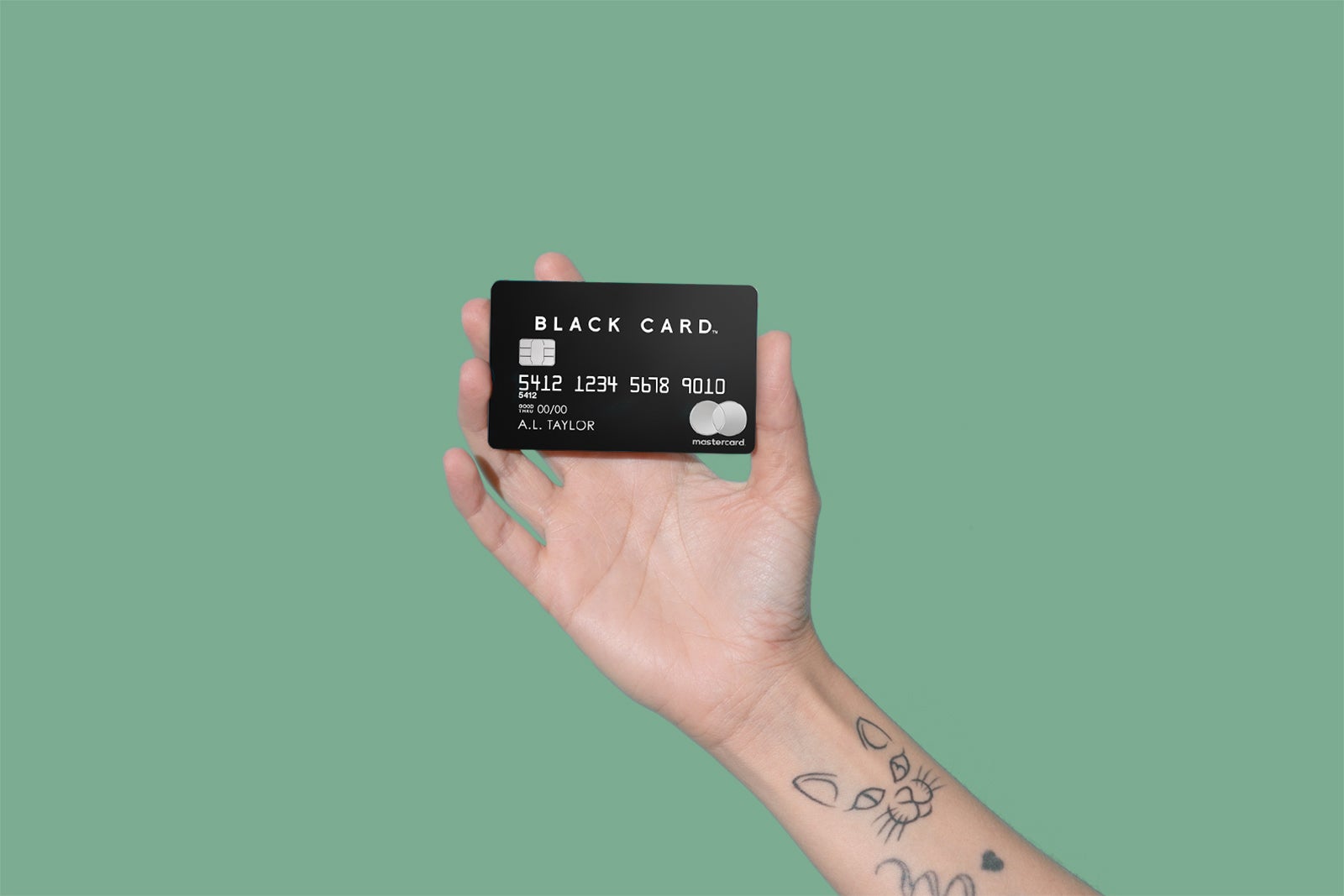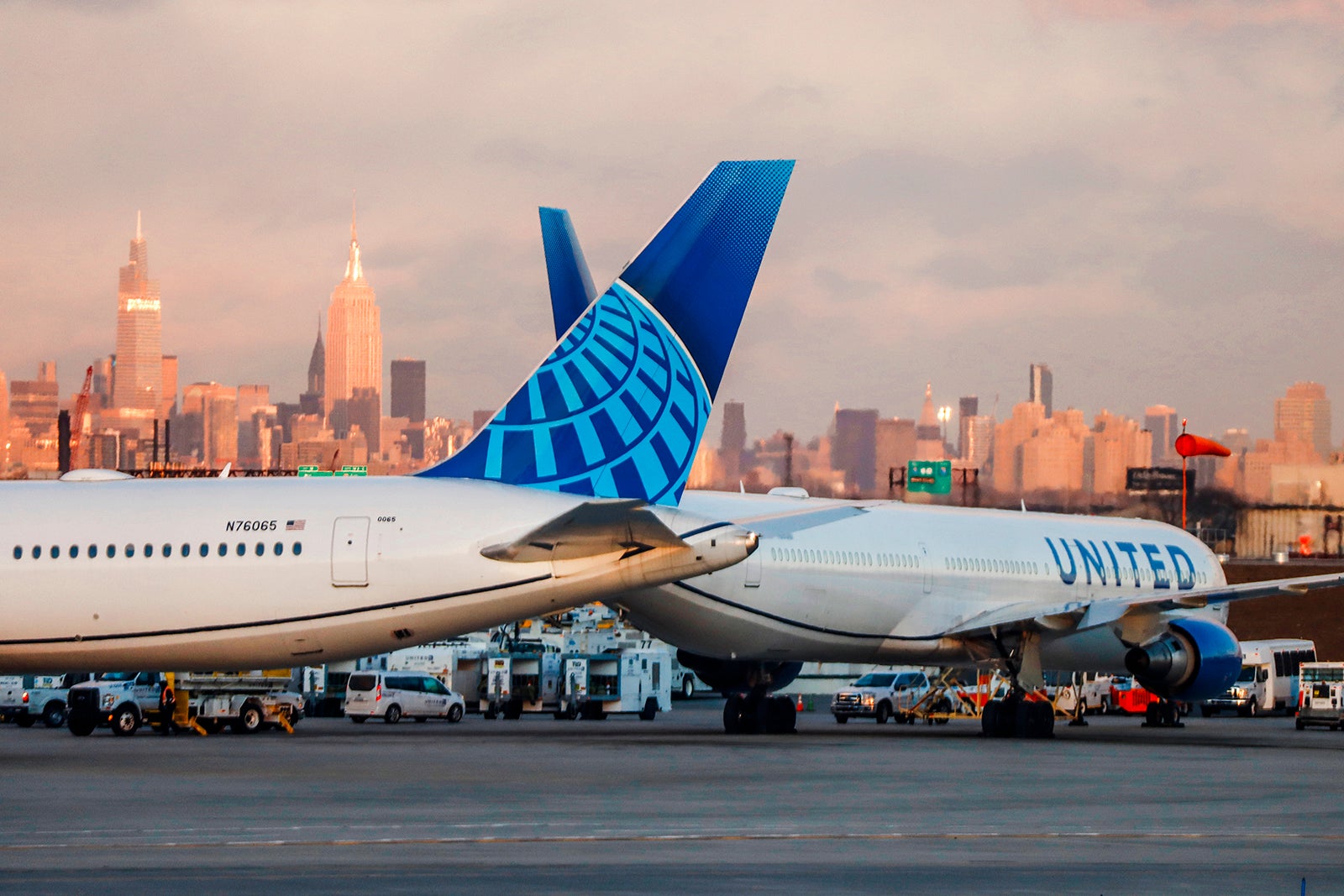Mastercard Black Card overview
The Mastercard® Black Card™ is a premium card with decent benefits to elevate your travels. Perks include a $100 annual airline incidental credit, reimbursement for your Global Entry or TSA PreCheck application fee and a Priority Pass Select membership. The card earns 1 point per dollar on all transactions, and points can be redeemed as 1.5% for cash back or 2% for airfare redemption with no blackout dates. Card rating*: ⭐⭐½
*Card rating is based on the opinion of TPG’s editors and is not influenced by the card issuer.
The Mastercard Black Card follows the trend of well-known cards such as the Chase Sapphire Reserve and The Platinum Card® from American Express being made from metal. As such, it allures people to join the ranks of metal cardholders.
Despite being similar in material to premium credit cards playing on the nomenclature of American Express’ Black (Centurion) Card, the Mastercard Black Card doesn’t offer as many benefits and comes with a steep annual fee of $495. As a premium card, it also requires a credit score of 740 or above.
Let’s take an in-depth look at the Mastercard Black Card to see how it compares to other premium cards so you can decide whether it deserves a place in your wallet.
The information for the Centurion Card has been collected independently by The Points Guy. The card details on this page have not been reviewed or provided by the card issuer.
Mastercard Black Card pros and cons
| Pros | Cons |
|
|
Mastercard Black Card welcome offer
One of the biggest drawbacks of the Mastercard Black Card is the lack of a welcome offer.

Despite calling itself a premium credit card, the Black Card doesn’t offer a lump sum of points for opening the card. This can be a huge detractor to many considering the high welcome offers of many cards in the travel credit card sphere.
Mastercard Black Card benefits
The Black Card offers several benefits that can help offset the annual fee while also providing cardholders with some conveniences for their travels.
In comparison to other premium cards, the benefits are few but still provide some value to frequent travelers. Cardholders receive a $100 air travel credit annually that is quite flexible. Flight-related purchases include airline tickets, bag fees, upgrades and other incidentals charged directly by the airline. A plus of this benefit is that you don’t need to select an airline to use it on, unlike the up to $200 airline credit available with the Amex Platinum. Enrollment is required.

The card also offers up to $100 as a statement credit for the Global Entry or TSA PreCheck application fee. As expected with a travel card, the Black Card has no foreign transaction fees.
It also comes with a Priority Pass Select membership, giving cardholders access to over 1,400 lounges worldwide. Unlike memberships from a few other credit cards, the card does not include access to Priority Pass restaurants or spas.
The card provides travel and purchase protections, including:
- Trip cancellation and interruption insurance: Receive secondary coverage for a covered round-trip purchase when you use the card. You can be reimbursed for the cost of the nonrefundable round-trip expenses up to $5,000 per person if an accidental-covered event causes you to cancel or interrupt your trip for a covered reason.
- Travel assistance: Receive travel, medical and legal assistance when you travel 50 miles or more from home.
- Baggage delay insurance: You can be reimbursed for covered items for up to $100 a day at a maximum of three qualifying days for delays of more than four hours from the time you arrive at your destination (arrival at your primary residence is excluded).
- Travel accident insurance: Receive up to $250,000 coverage for eligible common carrier accidental death and dismemberment when you charge your entire travel fare to your eligible card for a covered trip.
- Auto rental collision waiver: The card comes with secondary coverage for covered damages for a rental car when you pay for it using the card and decline the coverage offered by the rental agency.
The Black Card also comes with the following benefits:
- Cellphone protection: Supplemental coverage for damage or theft of your cellphone is up to $800 per claim and up to $1,000 per 12-month period. Cardholders are limited to two claims per 12-month period and a $50 deductible per claim.
- Lyft credit: Enroll and take three eligible rides in a month using the card to get a $5 Lyft credit.
- Shoprunner: Receive free two-day shipping and free return shipping on eligible purchases when you sign up for a complimentary ShopRunner membership with the Black Card.
- Instacart: Enjoy two months of complimentary Instacart+ membership and $10 off your second order each month (valid through March 31, 2025).
- Peacock credit: Receive a monthly $3 Peacock streaming credit or a $5 Peacock Premium Plus streaming credit (valid through March 31, 2025).
- McAfee Protection: Enjoy a discounted 13-month subscription to McAfee Total Protection (valid through March 31, 2024).
Related: Should you get travel insurance if you have credit card protection?
Earning rewards on the Mastercard Black Card
Unfortunately, despite marketing itself as a premium card, the Black Card disappoints with its poor earning rate. Cardholders earn 1 point per dollar spent, with no bonus categories to boost your return.

With such poor earning rates, you’re better off spending on a no-annual-fee cash-back credit card such as the Chase Freedom Unlimited, which earns 1.5% cash back on non-bonus earning categories. Earning rewards at such a low rate is another reason why this card is on the sidelines when compared to other premium credit cards.
Related: Best cash-back credit cards
Redeeming rewards on the Mastercard Black Card
Rewards can be redeemed through two ways: cash back or airfare.
You can redeem points for 2 cents each toward airfare, putting it ahead of the competition. Compare this to Chase Sapphire Reserve cardholders, who can redeem up to 1.5 cents each when booking through the Chase Ultimate Rewards travel portal. Of course, you can get significantly higher returns by transferring Chase Ultimate Rewards points to airline partners as opposed to redeeming them directly through a portal.

Not being able to transfer points to an airline partner is a negative data point for me, as I find far more value in doing so, especially when paired with transfer bonuses, sales or sweet spot redemptions. I will say that one of the biggest highlights of this card is redeeming for flights at 2 cents apiece, but apart from that, the Black Card really misses the mark in the premium credit card market.
Which cards compete with the Mastercard Black Card?
It’s no secret that the Black Card isn’t winning the praises of credit cards or points and miles enthusiasts. If you receive a mailer to apply for this card, check out the following cards below, which offer far more value and annual fees similar to the Black Card.
- If you want to earn more miles: The Capital One Venture X Rewards Credit Card is your best bet with an annual fee of $395 (see rates and fees). The card offers 10 miles per dollar spent on hotels and rental cars and 5 miles per dollar spent on flights booked through Capital One Travel. Meanwhile, all other purchases earn 2 miles per dollar, and you’ll receive a $300 annual credit for travel booked through Capital One Travel. For more information, read our full review of the Capital One Venture X Rewards Credit Card.
- If you spend a lot on dining: The American Express® Gold Card offers 4 points per dollar spent at restaurants worldwide (including U.S. takeout and delivery) and on groceries at U.S. supermarkets (up to $25,000 limit), as well as 3 points per dollar spent on airfare booked directly with an airline or through amextravel.com. Cardholders also receive up to a $120 dining credit and up to a $120 Uber cash credit. Best of all, points earned can be transferred to 21 partners (18 airlines and three hotels), and this card comes with an annual fee of $250 (see rates and fees). For more information, read our full review of the American Express Gold Card.
- If you want a Chase card: The Chase Sapphire Reserve offers higher earning rates on travel and dining purchases at 3 points per dollar, a flexible $300 annual travel credit and airport lounge access. Despite having an annual fee of $550, cardholders receive more valuable benefits than those with the Black Card. For more information, read our full review of the Chase Sapphire Reserve.
For additional options, check out our full list of the best premium credit cards.
Related: Are premium credit cards worth the annual fee?
Is the Mastercard Black Card worth it?
The Black Card is a card I would not recommend to those looking to enter the world of premium credit cards. This card only makes sense to those who want a stylish metal credit card with simple travel-related benefits and a higher redemption rate than other premium cards. Otherwise, receiving a hard inquiry on your credit report for a card with basic benefits, a poor earning rate, limited redemption options and a high annual fee is not worth it.
Bottom line
Lackluster benefits just to have a black card made from metal that plays on the legacy of the Centurion Card from American Express make this a card that should probably be avoided. A card marketing itself as a premium credit card with a high annual fee must have a better value proposition.
I will say that one of the biggest highlights of this card is redeeming for flights at 2 cents apiece, but apart from that, the Black Card really misses the mark in the premium credit card market.
Apply here: Mastercard Black Card
For rates and fees of the Amex Gold Card, click here




